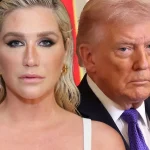Britain unveiled its mandate for trade talks with the United States on Monday, with Prime Minister Boris Johnson vowing to drive a hard bargain in negotiations.
According to Johnson, the bargain is set to test the “special relationship” between the two countries.
Johnson, after leaving the European Union in January, wanted to pursue a trade deal with Washington to try to not only champion Britain’s new independence but also to put pressure on the bloc in separate talks on a future relationship.
The government, as a negotiating team heads to Brussels to start those discussions, set out its mandate for talks with the U.S., warning that London would walk away if its demands are not met.
Britain said it wanted to achieve “huge gains” by removing barriers to trade but that its much-loved National Health Service (NHS) would not be on the table in talks, and that its food standards would be maintained.
That could set the two sides on a collision course, putting additional pressure on a relationship already strained by London’s decision to allow China’s Huawei a limited role in its 5G mobile network and a proposed digital services tax.
“We have the best negotiators in the business and of course, we’re going to drive a hard bargain to boost British industry.
“Most importantly, this transatlantic trade deal will reflect the unique closeness of our two great nations,” Johnson said.
The negotiating mandate hinted that Britain could reconsider the introduction of a digital tax in April which has been criticized by Washington.
The government said its analysis showed a deal with the United States could boost transatlantic trade by 15.3 billion pounds (19.61 billion dollars), and add 3.4 billion pounds to the British economy.
The report says Britain’s overall economy is worth around 2.7 trillion dollars.
The U.S. is currently Britain’s biggest trading partner after the EU, accounting for almost 19 percent of all its exports in 2018 and 11 percent of imports.
The EU, by comparison, accounted for 45 percent of all UK exports and 53 percent of UK imports.
NAN











